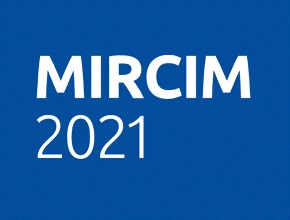Dr Leonard Wartofsky is a professor of medicine at Georgetown University Hospital, chairman emeritus of the Department of Medicine at the Washington Hospital Center, and past president of the American Thyroid Association and the Endocrine Society.
In April 2019, the New England Journal of Medicine (NEJM) published a study on the use of levothyroxine in women with thyroid peroxidase (TPO) antibodies before conception. Does levothyroxine therapy reduce the risk of pregnancy loss in thyroid peroxidase antibody (TPOAb)-positive euthyroid women who are newly pregnant?
Leonard Wartofsky, MD, MPH: This question deals with the whole issue of subclinical hypothyroidism in pregnant women. We define subclinical hypothyroidism as normal, measurable thyroxine (T4) and triiodothyronine (T3) but a slightly elevated thyroid-stimulating hormone (TSH). Appreciation of the TSH level is critical here, because normally in pregnancy TSH will fall because of human chorionic gonadotropin (hCG). hCG is a thyroid stimulator and in the pregnant women it will stimulate the thyroid gland to release thyroid hormone, which in turn circulates to the brain and suppresses pituitary TSH release.
Normally in the first trimester we see low levels of TSH and it is no cause for alarm. On the contrary, if we see higher levels of TSH—of 3, 4, 5, 8, etc—this is distinctly unusual, since the normal physiology indicates they should be low. Therefore, they are inappropriate levels that suggest thyroid hormone insufficiency. If this is a woman who also has positive thyroid antibodies—TPO antibodies—then we have a second clue that she has underlying thyroid disease of the Hashimoto type.
If we have someone with positive TPO antibodies and a marginally elevated TSH, it is clear that this is mild hypothyroidism. And there are data that show that in patients with subclinical hypothyroidism, the outcome of their pregnancies can be adverse. They have an increased risk of low-birthweight infants, they have a higher rate of miscarriage or fetal demise, they have a higher rate of abruption of the placenta, and other poor outcomes, including hypertension during pregnancy. I do not think that there is any controversy that mild thyroid failure is not good for pregnancy.
There are also data that women with positive TPO antibodies have a higher miscarriage rate and loss of pregnancy—poorer outcomes—than women without antibodies. There is no controversy there. Where the controversy arises is whether treating with thyroid hormone will improve the outcomes of such pregnancies. So, if we have a woman with mild TSH elevation, positive antibodies, do we treat [her] with thyroid hormone? Are there data that indicate it is helpful?
There are 3 studies that indicate it is not helpful. One by Casey, [published] in NEJM, one by John Lazarus from Wales, again [published] in NEJM, and the third one, [published] most recently, just last month [in April 2019], in NEJM by Dhillon-Smith. The first two studies have been criticized because the thyroid hormone treatment was started too late. The fetal thyroid starts developing at 10 to 12 weeks, and in both these studies the thyroid hormone was administered between the 16th and the 20th week, on average about the 17th week. Perhaps it was too late to be of benefit and that is why no benefit was seen.
The most recent study started the thyroid hormone prior to the onset of the pregnancy—so that argument cannot hold—and they also found no benefit from treating with thyroid hormone. If one looks at their study carefully, you see that there was on average only about 75% compliance with taking the thyroid hormone and there were only about 30% or 40% of the patients who had significant TPO titers. If you put all that together, there are some problems with coming to the conclusion that they reached.
It is my own view that there is an effect of subclinical hypothyroidism and there is an effect of TPO antibodies that is related to the autoimmune process, and that these patients with TPO antibodies in Hashimoto thyroiditis have a higher likelihood of having other antibodies, for example, to the ovary. Therefore, they may have abnormal ova and a higher rate of miscarriage on that basis. If you are not including patients with high titers of TPO antibodies, you may not be including patients with ovarian disfunction to a varying degree either.
I think that it is in general a combination—the reason for higher miscarriage rates in these patients is both the subclinical hypothyroidism and the autoimmune process—and it will vary depending upon the severity of both. And there is a whole spectrum.
I would rely on the recommendations of the American Thyroid Association that say that when you have positive antibodies and TSH levels of 4 or above, that is a strong recommendation to treat with thyroid hormone. It can do little harm, it is an inexpensive and not a problematic drug. Until this controversy is fully resolved, that would be my recommendation.
 English
English
 Español
Español
 українська
українська








